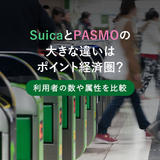What is “Supepa”?
"Supepa" is an abbreviation for "Space Performance” (space vs. effectiveness). It suggests how efficiently a limited amount of space is utilized and how favorably it is done.
The following are examples of ways one might be mindful of "Supepa."
● Use wall storage which takes up less space
● Minimize of the amount of furniture in your room with a sofa bed which provides a double-duty function
● Reduce storage space by buying compact appliances
First, we will explain the general idea behind "Supepa," including the reason behind all its buzz and its relationship to "Cospa" (an abbreviation for ‘Cost Performance’) and "Taipa" (an abbreviation for ‘Time Performance’).
■Background of the attention surrounding "Supepa"
The increased interest surrounding “Supepa” can be credited to the following two reasons.
1. Houses got smaller
Research examining Flat 35 (fully fixed rate housing loan) customers conducted by the Japan Housing Finance Agency (JHF) shows that the area size (national average) of condominiums is now approximately 10% smaller than it was 10 years ago. The size of housing, including detached houses, etc., overall, has also shrunk by about 6%.
The key to comfortable living has become how efficiently one can utilize limited space, and this is thought to have strengthened the importance of "Supepa."
2. With the increase in remote work, the home took on additional roles
The remote workstyle has become popular since the start of the COVID-19 pandemic. As people who had previously commuted to the office shifted to working from home, space that had once been primarily used for sleeping and eating was now required to serve as a "workplace" as well.
In order for the home to fulfill multiple roles, the space must be used efficiently and wisely. Therefore, the idea of "Supepa" gained attention.
[Reference] FY2021 Flat 35 user survey|Japan Housing Finance Agency
■A concept that also resonates with minimalists
People who place importance on spaciousness tend to "choose things in a selective way" in order to use limited space efficiently, which is similar to minimalist concepts.
A minimalist is a person who lives a lifestyle of only owning things that are considered necessary. By being selective and limiting possessions to things that are truly necessary and important, minimalists focus on saving money and space and live a spiritually-rich life despite having fewer things.
Minimalists have their own criteria for their purchases, such as whether the item can be used for a long time and whether they can be used for multiple purposes. Those who value "Supepa" also have the same criteria, and it can be said that minimalists and those who appreciate “Supepa” have related values.
■Differences and similarities with “Taipa” and “Cospa”
The terms "Supepa" and "Taipa” are derived from "Cospa" (cost performance). While "Cospa" refers to the effective use of money, "Taipa" (time performance) refers to the effective use of time, and "Supepa” (space performance) refers to the effective use of space.
Although the uses may differ, they also emphasize efficiency and seeking more effects (results) from less investment using limited amount of time and money.
Re-examining the use of space can also improve the efficient use of money and time. The following uses “toilet paper,” an essential item in daily life, as an example.
● “I bought double roll of long toilet paper to save storage space" (“Supepa”)
● "I don't have to replace or buy toilet paper as often because it lasts longer" ("Taipa”)
● "It is almost the same price as the normal toilet paper, so it was a good value for my money" (“Cospa”)
The pursuit of "Supepa" also improves "Taipa" and "Cospa," and these concepts are considered to be closely connected.
"Supepa" case studies
Examples of "Supepa" can be found in a variety of places, from the home to even the office space. Next, we detail specific examples of "Supepa" products and behaviors.
■1. Multiple functions
A surprising amount of storage space is needed in the home for things that will be used eventually, but not regularly, such as outdoor equipment and seasonal decorations. By creatively adapting these items to be “always used,” one can save storage space, and more and more people are using one item for multiple purposes.
For example, many outdoor dining tables, chairs, and sofas are of comparable quality to indoor furniture in terms of both design and comfort and can be used for both indoor and outdoor purposes.
A Christmas tree, which is a seasonal decoration, if designed to be versatile enough to be displayed as home decor, can also be enjoyed year-round when decorated with different ornaments.
LED tree (120 cm Shirakaba White Birch I) |NITORI
■2. Efficient use of space
The effective use of wall space for storage and decoration that does not take up a large portion of the room is attracting attention. If you have a small room, you can increase storage space without overwhelming your living space by installing storage space across the entire wall.
Wall storage "MiSEL"|DAIKEN
In addition, for the various seasonal Sekku festivals, it has been the norm to display large hina dolls (for Girls' Day) and kabuto helmets (for Tango no Sekku) in larger homes that were prevalent long ago, but in recent years, as houses have become smaller, compact wall decorations that enhance "Supepa" have emerged.
Wall decorations|Ningyo Kobo Hitotoe
[Masumura Limited Edition] Usumoegi kabuto helmet Tsuki made by traditional craftsman Seizan|Masumura Doll Store Rakuten Ichiba
■3. Reduced storage space
Being able to store it compactly when not in use is another feature that enhances "Supepa."
Fans, a typical seasonal home appliance, are attracting attention for their ability to fold into a small size to reduce storage space. Yamazen, a trading company specializing in home appliances, offers fans that can be folded into one-third their original size, allowing them to be stored efficiently in hard-to-use storage space such as the top of closets.
YAMAZEN Living room fan|Yodobashi dot com
For those who are looking to achieve "Supepa," it is important to also be able to store daily-use items in a space-saving manner. Home appliance manufacturer Cado has launched an easy-to-store, stick-shaped "baton" hair dryer, a drastic change from the conventional shape. This new product, a stick-shaped hair dryer with a diameter of approximately 4 cm, has won the approval of many who have experienced trouble storing their hair dryer in their cramped bathrooms, where it takes up a surprising amount of space due to its irregular shape.
Stick-type hair dryer baton | cado
Many things that were not previously "foldable" are now made foldable. ICOMA, a manufacturer of electric bikes, has launched the "TATAMEL BIKE," which can be folded into the size of a suitcase and stored under a desk, and it is expected to be used in homes and offices with no parking space.
TATAMEL BIKE | ICOMA
■4. Use for different purposes than originally intended
With the idea of enhancing the efficient use of space depending on how it is used, finding alternative ways to utilize space such as "working remotely from a karaoke room" or "workation (working + vacation) while on a trip" can be said to be examples of being mindful of "Supepa."
"Workation," meaning working while on vacation, is a particularly good example of not only "Supepa" but also "Taipa" since both work and leisure are performed in the same space and at the same time.
In addition, a technology that demonstrates high "Supepa" by forcibly transforming the space you are in to a completely different space is called a metaverse. Metaverse is a virtual space created by video technology, in which the user operates in a virtual space using VR goggles and a smartphone.
The virtual office, which utilizes this technology, is characterized by the ability to communicate with other employees in a virtual space as if they were present, and was popularized by the COVID-19 pandemic. This technology, which can instantly transform any location into an office, is the ultimate "Supepa."
"ovice" website which offers a virtual office for attending work
■5. "Supepa” even in the office
“Supepa” is not limited to private homes, but can also be recognized in the office.
Research by Nikkiso Co., Ltd., a provider of sterilization and deodorization equipment, etc., found that approximately 40% of employees experience the feeling of confinement or stress due to acrylic panels and other preventative COVID-19 measures in the office. In addition, with the changing workstyle in the post-COVID era, about 50% of employees and about 75% of office maintenance staff answered that companies should be more conscious when it comes to the value and results ("Supepa") of the office space going forward.
In future offices, for example, offices will be required to embed air purifiers into the walls and adopt ceilings and ventilation systems that help avoid the use of acrylic panels in order to increase the "Supepa" of preventative COVID-19 measures and reduce the feeling of confinement caused by small spaces.
At the same time, it would be a good idea to consider ways to increase “Supepa” by devising lighting, background music, and other mechanisms to enhance creative thinking.
[Reference] 52.5% of employees and 76.0% of staff in charge of office maintenance answered that companies should be aware of the value and results they can obtain from their space|PR TIMES
Behaviors of "Supepa" consumers
What are the consumption behaviors of people who are looking for "Supepa"? Here are some consumer behaviors specific to people who value "Supepa."
■No need for excess and unnecessary things
The “intentional choice to not buy or let go” in order to maintain comfort in a limited space is a value shared by those who value spaciousness.
For example, "properties without a bath unit" have recently been attracting attention among young people living alone. The main appeal of these properties is that they are conveniently located near train stations in Tokyo, but the rent is about half the price of properties that include a bath unit. They are popular among young people who want to reduce their fixed costs and spend that money on things they like.
With the popularity of these properties without bath units, public bathhouses are gaining popularity. Young people actually find the retro Showa-era (1926-1989) atmosphere very refreshing, and a new sense of value is emerging, such as the liking for bathing in a larger, unrestrictive, liberating bathtub at the public bathhouses and the interactions with the bathhouse attendant and regular customers.
[Reference] "Properties without a bath unit" are popular among young people...Rent is 32,000 yen in Tokyo: "I can spend money on what I like"|TV Asahi News
■Looking to kill more than two birds with one stone
Those who are looking for "Supepa" carefully select and incorporate multifunctional items that serve two or more functions in a single item.
Multifunctional furniture such as sofa beds, which fold compactly for use as a sofa and extends for use as a bed, and beds with hidden storage underneath have already become mainstream items for smaller rooms.
These multifunctional furniture is further evolving, with the introduction of "transformational furniture," like a bed that folds into the wall that can be turned over to become a decorative shelf and sofa. The market for multifunctional furniture, which creates a better living environment through the efficient use of space, is becoming popular worldwide.
Italian furniture brand Resource Furniture is doing well with transformational furniture that opens up small spaces such as apartments. The Nuovoliola wall-bed system, which includes a sofa and hidden storage, allows users to transform the space by simply pulling a handle, leaving fabrics and shelves intact.
In Japan, "multifunctional" items will be adopted in various scenes in the future, and it is expected that a lifestyle that is highly mindful of "Supepa" will be realized.


Nuovoliola |Resource Furniture
[Reference] Multifunctional furniture market: Global market size, demand, and share| Research Nester
■Taking advantage of sharing and rental services
It is also characteristic of people who seek "Supepa" to actively use sharing services and rentals instead of owning things that are not used frequently.
Car shares and bike shares not only improve "Supepa" by eliminating the need for car or bike parking space at home, but also contribute to improved "Taipa" by eliminating the need for time-consuming maintenance. Since there are no running costs such as taxes or gasoline, depending on the frequency of use, an improvement in cost performance can also be expected.
In addition, while renting formal dresses for weddings and furisode (long-sleeved kimono) and hakama (traditional pant-like garment) for coming-of-age ceremonies is a standard practice, recently a subscription-type service has emerged that allows customers to rent everyday clothing for a fixed period of time. This service allows customers to minimize the number of clothes they own, thereby reducing the need for more storage space and increasing spaciousness.
Clothing rentals can also help improve "Taipa" by eliminating the need to send off-season clothes to the cleaners and organize the closet.
Sharing and rental services that save "space" and "time" match the needs of modern people, who demand efficiency in everything they do.
Summary
"Supepa" (space performance) emphasizes the efficient use of space. More and more people are pursuing comfortable living by making efficient use of limited space through the use of folding furniture, wall storage, etc.
Marketing activities that are mindful of "Supepa" in addition to "Taipa" is becoming important as people are increasingly emphasizing efficiency. For example, people are reconsidering the need for things that were previously considered necessary and deliberately letting things go or relying on single items that have multiple functions.
Related articles

What is "Time Performance"? Marketing Case Study of "Taipa Supremacy" Among Generation Z
https://manamina.valuesccg.com/articles/2184Many Gen Zers are conscious of “taipa," short for “time performance," in various aspects of their daily life. So much so that the term "taipa supremacy" has emerged. This case study provides an overview of "taipa," its values, and marketing examples to understand the psychology and latest trends among Gen Zers.
※日本語での記事はこちらをご確認ください

スペパとは?コスパ・タイパに続く、スペパの消費動向【事例付き】
https://manamina.valuesccg.com/articles/2314最近「タイパ」という言葉を耳にする機会が増えたという人も多いのではないでしょうか。「今年の新語2022」で大賞にも選ばれたタイパは、Z世代の新常識として広く浸透しつつあります。そんなタイパに続いて注目されているのが「スペパ」です。この記事では、新しい価値観や最新のトレンドを知るために、スペパの概要や事例、スペパを求める人々の消費行動を解説します。





















マナミナは" まなべるみんなのデータマーケティング・マガジン "。
市場の動向や消費者の気持ちをデータを調査して伝えます。
編集部は、メディア出身者やデータ分析プロジェクト経験者、マーケティングコンサルタント、広告代理店出身者まで、様々なバックグラウンドのメンバーが集まりました。イメージは「仲の良いパートナー会社の人」。難しいことも簡単に、「みんながまなべる」メディアをめざして、日々情報を発信しています。